History School Trips
trip ideas to historical sites and museums
History field trips and workshops
School field trips to historical sites and museums offer students a chance to step outside the confines of the classroom and engage with the past in a more immersive, tangible way. Excursions to landmarks, battlefields, or other historic exhibits allow your class to see the places where history unfolded, providing them with a richer understanding of the past.
For those looking for a history themed workshop to visit your school, your students can learn about your historical topic from a different perspective, maybe handle artifacts from the past, and gain a deeper personal connection with the subject your are teaching.
Interacting with knowledgeable experts in a subjct brings the past to life in vivid, compelling ways that textbooks cannot replicate. Enabling pupils to have an understanding beyond the simple facts and figures. Beyond the academic value, first hand experiences offered by a history school trip or field trip will instill a sense of wonder, curiosity, and appreciation for the events and stories of those who came before us.
School children may find it difficult to imagine how people lived in the past due to their limited life experience. As part of their historical enquiry, a history school trip to a historically significant place will certainly help to put what they are being taught in the classroom, into context, and make it more understandable. Teachers usually find that the class are so much more motivated following a history themed trip, which makes the subsequent lessons more enjoyable and allows the pupils to make the congnitive connection between the place and what is on the paper in front of them.
To make it easier for you to find a history trip to suit your curriculum topic, we have split our historical school trips into more helpful sections relating to specific periods in history.
If you want the experience to visit your school, try our in-school history workshops page.
£5m Investment in School Trips
26 June 2025London Museum Docklands is running a new exhibition telling the story of London's history through the finds of Mudlarks - the people who scavenge the shores of the river for items lost over time. School groups can visit free to enjoy fascinating local history, archaeology and art. [1]
The Clore Duffield Foundation announced a £5m fund over five years to support school trips to museums, heritage sites, and other educational experiences. The first year, 2024, allocates £1m, focusing on schools in priority local authorities like Blackpool and Cornwall. Primary schools will receive funding for six fully-funded off-site trips per year for every child, while secondary schools will get at least three. This initiative addresses the rising costs, with English Heritage reporting a 63% increase in visit costs over three years. [2]
Discover the latest Prehistory school trips at Celtic Harmony Camp in Hertfordshire, where students experience Stone to Iron Age life through hands-on activities. Recent news highlights their award-winning educational programmes, ensuring immersive learning. [3]
Discover cultural school trips at Culture Coventry Trust, exploring Coventry's heritage through museums and galleries. Recent news includes new art and history workshops, making learning engaging for students in the West Midlands. [4]
Find out about educational visits at National Museums Liverpool, offering history and science trips across eight museums. Recent news highlights new virtual classrooms, ensuring schools can access enriching experiences remotely. [5]

Portals To The Past
 School Trip East Midlands, West Midlands, London & South East, East of England, South West, North East, North West, Yorkshire
School Trip East Midlands, West Midlands, London & South East, East of England, South West, North East, North West, Yorkshire Subjects: English, History, Prehistory, Greeks, Egyptians, Romans, Saxons, Vikings
Subjects: English, History, Prehistory, Greeks, Egyptians, Romans, Saxons, Vikings
Portals to the Past provide high quality history workshops in schools for KS2, led by experienced historical re-enactors and historians. Available across most of England. From the Stone Age through to WW2 our workshops come to your school.
Portals To The Past
Periods of British and World History
-
Prehistory
Before AD 43
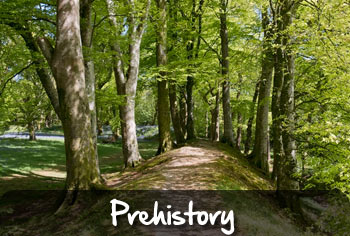 Find out where to take your class if you want to bring prehistory, the Stone Age, Bronze Age, and Iron Age to life.
Find out where to take your class if you want to bring prehistory, the Stone Age, Bronze Age, and Iron Age to life.
view Prehistory.. -
The Celts
750 BC - AD 43
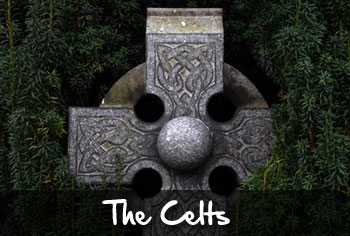 Learn about the Celts of Iron Age Britain through a range of history school workshops, perfect for KS1 and KS2 history.
Learn about the Celts of Iron Age Britain through a range of history school workshops, perfect for KS1 and KS2 history.
view Celts.. -
Roman Britain
AD 43 - 410
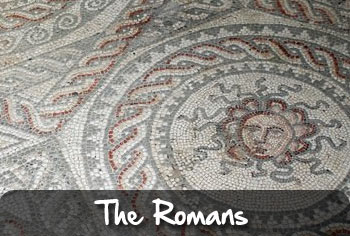 The Roman invasion of 43 AD was far from decisive, indeed it took a few decades for the Romans to stretch their influence. Find a Roman school history trip
The Roman invasion of 43 AD was far from decisive, indeed it took a few decades for the Romans to stretch their influence. Find a Roman school history trip
view Roman Britain.. -
Saxons & Vikings
AD 410 - 1066
 Invaders and Settlers visited our island from North Western Europe. Saxon Settlements, Saxon Laws and Justice, museums, monuments and churches.
Invaders and Settlers visited our island from North Western Europe. Saxon Settlements, Saxon Laws and Justice, museums, monuments and churches.
view Saxons and Vikings.. -
Medieval History
AD 1066 - 1540
 The Medieval period, also sometimes referred to as the Middle Ages, began with the Norman conquest of Britain in 1066 and lasted until the end of the fifteenth century. View a range of history school trips with a medieval twist.
The Medieval period, also sometimes referred to as the Middle Ages, began with the Norman conquest of Britain in 1066 and lasted until the end of the fifteenth century. View a range of history school trips with a medieval twist.
view Medieval.. view Castles.. -
The Elizabethans
AD 1558 - 1603
 Discover the Golden Era of the Elizabethans, the reign of Elizabeth I, the works of Shakespeare and a range of school trips and workshops to inspire your history students.
Discover the Golden Era of the Elizabethans, the reign of Elizabeth I, the works of Shakespeare and a range of school trips and workshops to inspire your history students.
view Elizabethans.. -
Tudors and Stuarts
AD 1603 - 1740
 The Tudor period began in 1485, following the final battle of the Wars of the Roses, which had been fought during the Plantagenet period between the house of York and the Lancastrians.
The Tudor period began in 1485, following the final battle of the Wars of the Roses, which had been fought during the Plantagenet period between the house of York and the Lancastrians.
view Tudors & Stuarts.. -
Industrial Revolution
AD 1750 - 1900
 During the second half of the eighteenth century, a huge change began to take place in Britain. Driven by a unique set of circumstances including growth in population, the Industrial Revolution took place.
During the second half of the eighteenth century, a huge change began to take place in Britain. Driven by a unique set of circumstances including growth in population, the Industrial Revolution took place.
view Industrial Revolution..
view Inventors and Inventions.. -
The Victorians
AD 1837 - 1901
 The Victorian period lasted from 1837 until 1901. Discover a range of school history trips focusing on this fascinating period of British history.
The Victorian period lasted from 1837 until 1901. Discover a range of school history trips focusing on this fascinating period of British history.
view The Victorians.. -
20th Century History
AD 1900 - 1999
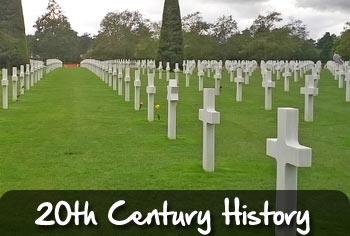 The study topics for the twentieth century are wide ranging, perhaps due to changes in lifestyle and technology that took place.
The study topics for the twentieth century are wide ranging, perhaps due to changes in lifestyle and technology that took place.
view Twentieth Century..
-
Significant Individuals
 Workshops to help you learn about the lives of significant individuals in the past who have contributed to national and international achievements
Workshops to help you learn about the lives of significant individuals in the past who have contributed to national and international achievements
view Significant Individuals.. -
Black History
 Celebrate Black History Month during October each year and teach your class topics ranging from Slavery and Segregation to Abolition and Windrush.
Celebrate Black History Month during October each year and teach your class topics ranging from Slavery and Segregation to Abolition and Windrush.
view Black History.. -
History of Toys
 These school workshops for KS1 demonstrate a timeline of toys through history.
These school workshops for KS1 demonstrate a timeline of toys through history.
view Toys history.. -
British Monarchs
 A selection of history workshops and day trips for school groups studying the changing power of the monarchs. History curriculum KS1 KS2 KS3.
A selection of history workshops and day trips for school groups studying the changing power of the monarchs. History curriculum KS1 KS2 KS3.
view Monarchs.. -
Ancient Civilisations
 If your class history topic is Ancient Egypt, we have a range of trips and workshops that will bring the Egyptians to life for your pupils.
If your class history topic is Ancient Egypt, we have a range of trips and workshops that will bring the Egyptians to life for your pupils.
view Egyptians.. -
Ancient Egyptians
 If your class history topic is Ancient Egypt, we have a range of trips and workshops that will bring the Egyptians to life for your pupils.history-egyptians
If your class history topic is Ancient Egypt, we have a range of trips and workshops that will bring the Egyptians to life for your pupils.history-egyptians
view Egyptians.. -
Ancient Greeks
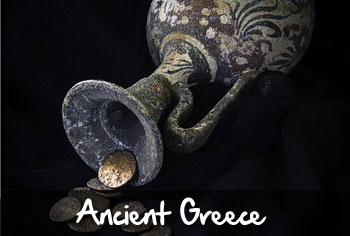 Is your topic Ancient Greece, if so we have a range of historical trips and workshops that will bring Greek history to life for your pupils.
Is your topic Ancient Greece, if so we have a range of historical trips and workshops that will bring Greek history to life for your pupils.
view Ancient Greeks.. -
World Wars
 Bring to life the history of the two World Wars in a way that will engage your students and allow them to develop a better understanding of the topics you are studying in the classroom.
Bring to life the history of the two World Wars in a way that will engage your students and allow them to develop a better understanding of the topics you are studying in the classroom.
view World Wars.. -
History Residentials
 Get hands on with residential history trips through creative and interactive learning experiences designed by qualified teachers, throughout the UK.
Get hands on with residential history trips through creative and interactive learning experiences designed by qualified teachers, throughout the UK.
view History Residentials..
The Fascinating History of School Trips in the UK
School trips have long been a cornerstone of education in the United Kingdom, offering students hands-on learning experiences that bring classroom lessons to life. From exploring historic castles to wandering through world-class museums, school trips in the UK have evolved over centuries into a cherished tradition. But where did this practice begin, and how has it transformed into the vibrant, educational adventures we know today? In this deep dive into the history of school trips in the UK, we'll uncover their origins, evolution, and enduring impact on education, all while highlighting why these excursions remain a vital part of learning.
The Early Roots of School Trips in the UK
The concept of school trips in the UK can be traced back to the early modern period, when education was largely reserved for the elite. In the 17th and 18th centuries, wealthy families sent their sons on the "Grand Tour," a cultural journey across Europe to visit historic sites, study art, and immerse themselves in classical history. While not school trips in the modern sense, these journeys laid the groundwork for educational travel by emphasising the value of experiential learning. Young aristocrats visited places like Rome, Paris, and Athens, soaking up knowledge that complemented their formal studies.
By the 19th century, education in the UK became more accessible due to reforms like the Elementary Education Act of 1870, which mandated schooling for children aged 5 to 13. As schools multiplied, educators began to recognise the benefits of taking students beyond the classroom. Early school outings were modest, often involving visits to local churches, factories, or natural sites. These trips were designed to teach children about their immediate surroundings and instil a sense of civic pride. For example, schools in industrial towns like Manchester might have organised visits to textile mills to show students the machinery driving Britain's economy.
The Victorian Era: School Trips Take Shape
The Victorian era marked a turning point for school trips in the UK, as the industrial revolution and expanding rail networks made travel more feasible. Trains allowed schools to organise day trips to nearby cities or coastal towns, making educational outings accessible to a broader range of students. Seaside towns like Blackpool and Brighton became popular destinations, where children could learn about marine life, geography, and even social history through the lens of Victorian leisure culture.
During this period, philanthropists and educators like Thomas Cook, often credited with pioneering modern tourism, played a key role. Cook organised group excursions for schools and temperance societies, offering affordable travel to destinations like London's Great Exhibition of 1851. These early school trips were often tied to moral and religious education, with visits to cathedrals or historical sites reinforcing lessons about British heritage and Christian values.
The rise of public schools (private, fee-paying institutions in the UK) also influenced the development of school trips. Institutions like Eton and Harrow began incorporating outdoor activities, such as hiking and camping, into their curricula. These outings were seen as character-building exercises, fostering teamwork and resilience. By the late 19th century, school trips were becoming a recognised part of education, even if they were still largely reserved for wealthier schools.
The 20th Century: School Trips for All
The early 20th century brought significant changes to the structure of school trips in the UK. The Education Act of 1944, which established free secondary education, emphasised a more holistic approach to learning. Schools began to see trips as essential for broadening students' horizons, particularly for those from less privileged backgrounds. Museums, such as the British Museum and the Natural History Museum in London, became popular destinations, offering free access to world-class collections that enriched history, science, and art lessons. This objective continues to our current era, with learning approaches like Cultural Capital.
The post-war period saw a boom in school trips, driven by economic recovery and a growing emphasis on child-centered education. The 1950's and 1960's were a golden age for educational tours, with schools organising trips to historic sites like Stonehenge, Hadrian's Wall, and Stratford-upon-Avon, the birthplace of Shakespeare. These destinations allowed students to connect with Britain's rich cultural and historical heritage in ways that textbooks couldn't.
Residential school trips also gained popularity during this time. Organisations like the Youth Hostels Association (YHA), founded in 1930, provided affordable accommodation for school groups, enabling multi-day trips to rural areas like the Lake District or the Peak District. These trips often combined outdoor activities, such as hiking or orienteering, with educational goals, teaching students about geography, ecology, and teamwork.

 Subscribe
Subscribe